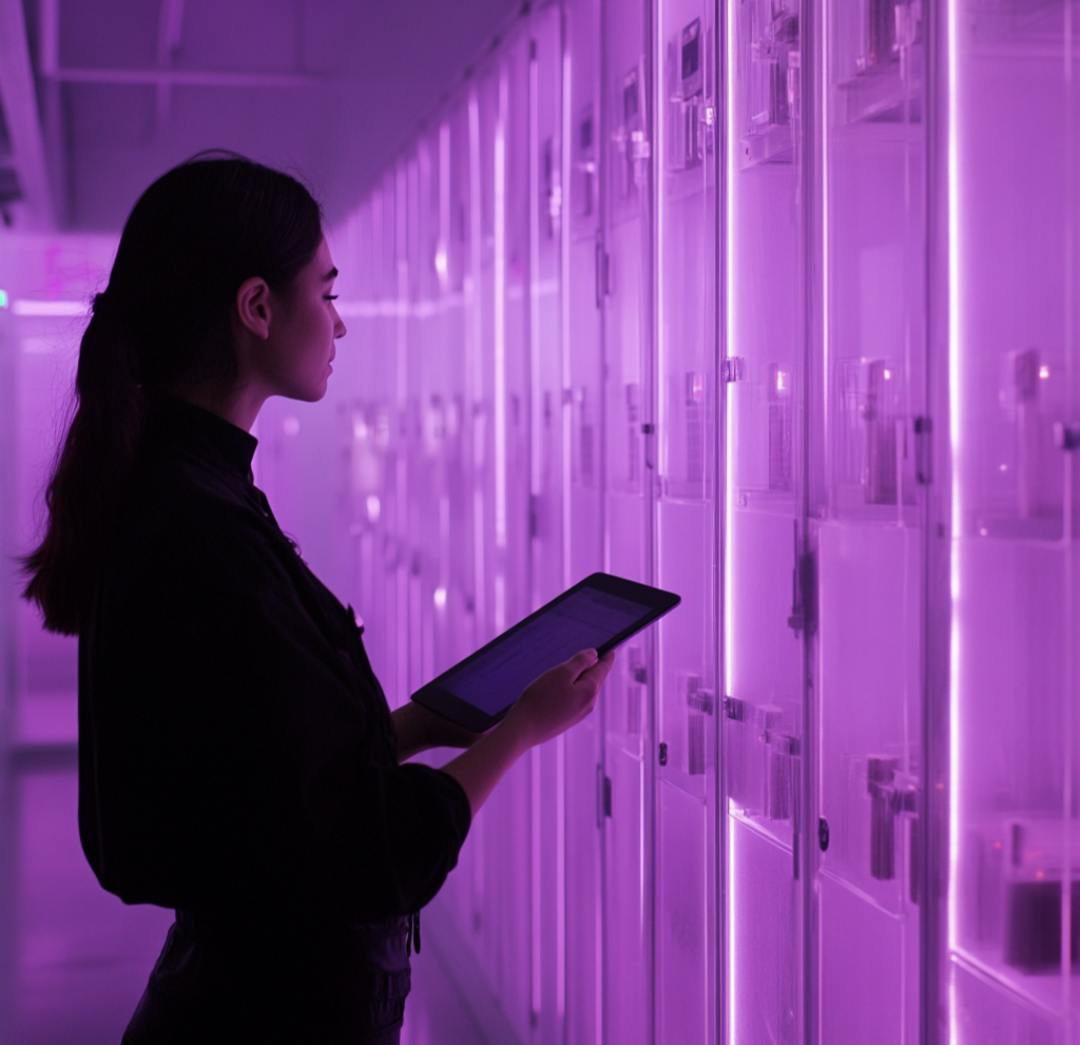Insect farming is at the forefront of sustainable agriculture, offering a high-protein, low-carbon solution to some of the planet’s most pressing challenges. However, like any rapidly growing industry, it comes with its own set of challenges. Farmers are quickly learning that the traditional methods of managing small farms—manual data tracking, intuition-based decisions, and ad hoc operations—aren’t scalable when operations expand.
To meet the demand for efficient, profitable, and sustainable production, more insect farmers are turning to artificial intelligence (AI). With tools that range from real-time monitoring to predictive analytics, AI is helping insect farms operate smarter and more sustainably. Let’s explore the three main reasons AI is transforming the insect farming industry.
1. Scaling Operations with Precision: Managing Complexity at Scale
Scaling an insect farm isn’t just about increasing insect production—it’s about effectively managing the complexities that arise with larger-scale operations. Maintaining ideal environmental conditions, ensuring consistent feed distribution, and tracking health metrics across millions (or billions) of insects requires precision that traditional methods simply can’t provide.
The Problem
At a small scale, farms can manually monitor parameters like temperature, humidity, and feed levels. But as production grows, manual methods become not only labor-intensive but prone to human error. Missing a single critical data point, such as a temperature spike or feed miscalculation, can lead to massive losses.
The AI Solution
AI-powered systems use sensors and IoT devices to automatically monitor critical environmental variables like temperature, humidity, and CO2 levels. These systems don’t just collect data—they analyze it in real-time, flagging anomalies or deviations that could harm the insects.
The Result
- Consistent, optimized growth conditions.
- Reduction in waste and inefficiency.
- Decreased reliance on manual labor, cutting production costs significantly.
For example, an insect farm using Bug Mars’ AI software can automate feed distribution while monitoring growth patterns to predict when insects will be ready for harvest. This not only saves time but ensures maximum yield at every stage of production.
2. Improving Productivity with Data-Driven Insights
One of the biggest challenges in insect farming is the reliance on spreadsheets and manual tracking systems. While this works for small operations, it limits the ability to spot inefficiencies or predict outcomes when scaling up.
The Problem
Farmers need to track everything from feed conversion rates to insect mortality. Relying on manual record-keeping can lead to missed patterns and delayed responses to problems like disease outbreaks or poor feed efficiency. Without clear data insights, it’s difficult to pinpoint what’s working—and what isn’t.
The AI Solution
AI systems can identify patterns and provide actionable insights by analyzing vast amounts of farm data. For example, computer vision tools can assess insect size and health, while machine learning models predict feed requirements based on historical trends. Farmers can receive daily reports on KPIs, helping them make more informed decisions.
The Result
- Early detection of inefficiencies, such as overfeeding or underfeeding.
- Proactive problem-solving, like addressing early signs of colony collapse.
- Increased productivity and reduced costs.
With AI, a farm can predict the optimal time to adjust feeding schedules, avoiding overuse of resources and ensuring insects are growing at their healthiest rate. Data insights can also help forecast demand and plan production schedules more effectively.
3. Achieving Sustainability Goals
Sustainability is one of the key drivers of insect farming, especially as the world looks for alternatives to resource-intensive livestock farming. However, achieving sustainability at scale requires precise resource management and compliance with ever-evolving regulations.
The Problem
Insect farming has to balance efficiency with environmental stewardship. Mismanagement of resources—whether it’s overfeeding insects or excessive energy use—can erode profit margins and increase environmental impact. Additionally, new regulations, such as the European Union Deforestation Regulation (EUDR), are putting pressure on farms to demonstrate transparency and compliance.
The AI Solution
AI-powered tools allow farms to track and optimize resource use in real time. By monitoring feed usage, energy consumption, and waste outputs, AI systems help farms reduce inefficiencies and operate more sustainably. Predictive analytics can also ensure farms are compliant with regulations by providing transparent, traceable data on farming practices.
The Result
- Reduced carbon footprint through efficient resource use.
- Lower operational costs from waste minimization.
- Easier compliance with sustainability certifications and regulations.
For instance, Bug Mars’ software not only tracks environmental conditions but also helps farmers measure their impact, enabling them to meet sustainability goals while staying profitable.
The Bigger Picture: Why AI Is a Game-Changer for Insect Farming
AI isn’t just a tool for solving today’s challenges—it’s laying the foundation for the future of insect farming. As the industry evolves, farms will need to adapt to growing demand, tighter regulations, and the need for transparency in the global food supply chain. Farms that embrace AI today are positioning themselves as leaders in this rapidly expanding market.
Key Benefits of AI Adoption in Insect Farming
- Labor Savings: Automation reduces the need for manual work, cutting costs.
- Yield Optimization: Precise monitoring ensures healthier insects and higher production.
- Scalability: Farms can expand their operations without sacrificing efficiency.
- Competitive Edge: Early adopters of AI gain a significant advantage in a growing industry.
Conclusion
Insect farming has the potential to transform the global food system, offering sustainable solutions for livestock feed, aquaculture, and even human consumption. But scaling this industry sustainably and efficiently requires the power of AI. From improving productivity to achieving sustainability goals, AI is helping insect farmers overcome the challenges of growth and set the stage for a more sustainable future.
